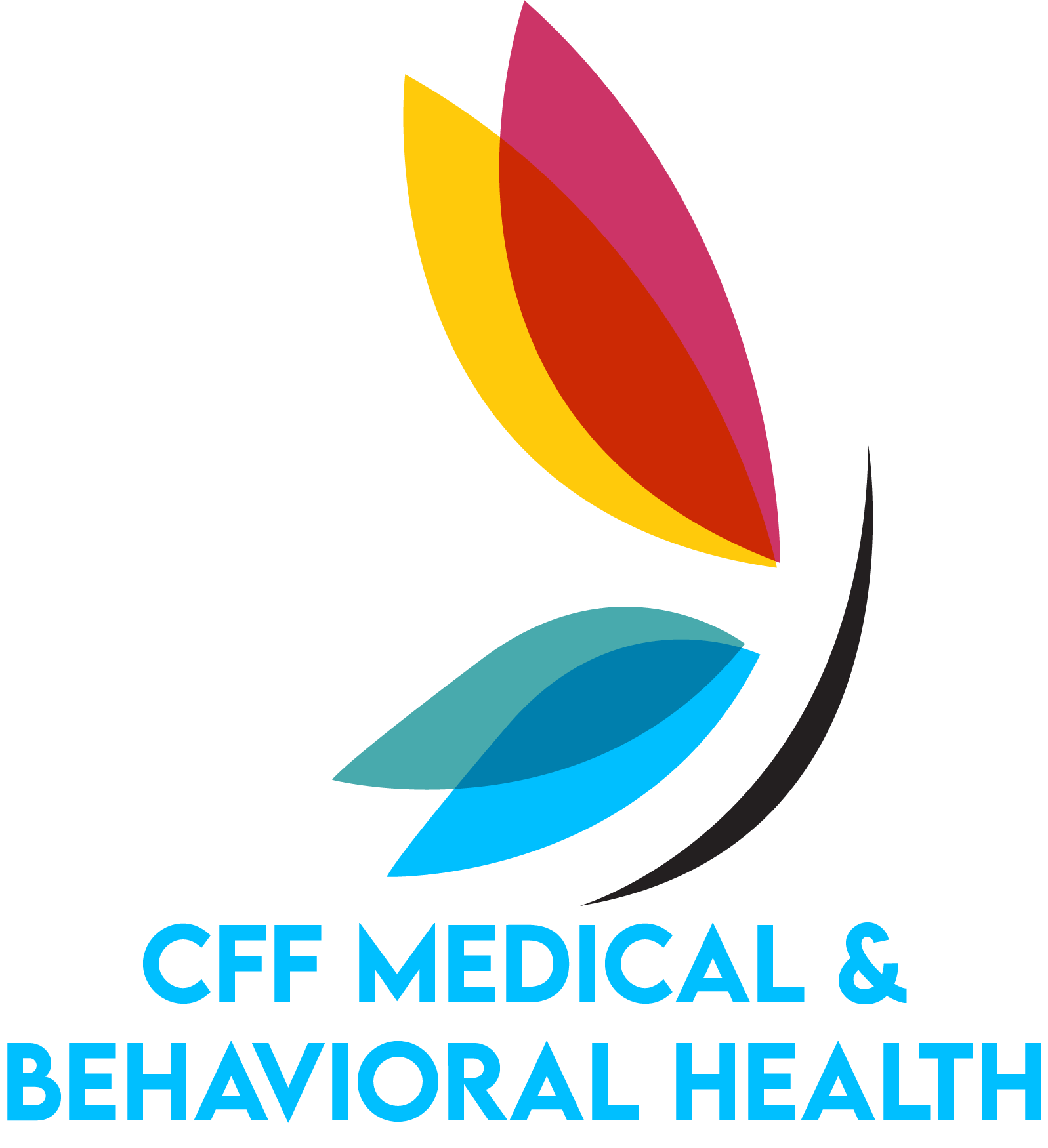Free Crisis Hotline
1-800-273-TALK (1-800-273-8255)
PLEASE RETURN TO THE EMERGENCY DEPARTMENT IF:
- You develop new or worsening thoughts of harming yourself or others
- You have hurt yourself and need medical attention (Please call 911 if seriously hurt or if concerned about an overdose)
- You have new and/or worsening symptoms
- If you feel unsafe at any time, call 911 or go to the nearest emergency room.
PLEASE RETURN TO THE EMERGENCY DEPARTMENT IF:
IF YOU NEED HELP RIGHT AWAY, CALL 9-1-1
Find Emotional Stability, Strengthen Relationships, and Regain Control
Borderline Personality Disorder (BPD) is a complex mental health condition that affects emotional regulation, self-identity, and interpersonal relationships. Individuals with BPD often experience intense emotions, impulsivity, and unstable relationships, making daily life challenging. However, with the right treatment and coping strategies, individuals with BPD can lead fulfilling, balanced lives.
At CFF Medical & Behavioral Health, we specialize in evidence-based, compassionate treatment for BPD, offering structured therapy, medication management, and emotional regulation strategies. Our goal is to help individuals understand their emotions, develop self-control, and build meaningful relationships.
If you or a loved one struggles with emotional instability, impulsivity, or extreme shifts in self-perception, our expert team is here to help.
Who Is This Service For
Our Borderline Personality Disorder Treatment Program is designed for individuals who experience.
✔ Intense Mood Swings – Emotions that shift rapidly from joy to anger, sadness, or anxiety.
✔ Fear of Abandonment – Feeling extreme distress or panic over real or perceived rejection.
✔ Unstable Relationships – Frequent conflicts, idealizing someone one moment and devaluing them the next.
✔ Impulsive or Self-Destructive Behaviors – Engaging in reckless spending, substance abuse, self-harm, or risky actions.
✔ Distorted Self-Image – Difficulty maintaining a stable sense of identity or struggling with self-worth.
✔ Chronic Feelings of Emptiness – Feeling disconnected, lonely, or as if life lacks meaning.
✔ Episodes of Extreme Anger or Dissociation – Struggling with intense outbursts or feeling emotionally “numb” at times.
If BPD symptoms make it difficult to maintain relationships, work, or personal stability, our structured treatment plan can provide the support and strategies needed to regain balance.


Understanding Borderline Personality Disorder (BPD)
BPD is a personality disorder that affects the way individuals think, feel, and interact with others. It often develops due to a combination of genetics, childhood experiences, and brain function.
Common Signs of BPD
✔ Extreme sensitivity to rejection or criticism
✔ Persistent feelings of being misunderstood or “different” from others
✔ Engaging in self-harm or suicidal thoughts as a way to cope with emotions
✔ Difficulty establishing long-term relationships due to trust issues
✔ Feeling emotionally “empty” or disconnected from reality
BPD is often misdiagnosed as depression, anxiety, or bipolar disorder, but receiving the right diagnosis and treatment can lead to significant improvement in emotional well-being and daily functioning.
Our Approach to Borderline Personality Disorder Treatment
Comprehensive Assessment & Personalized Treatment Plan
One-hour clinical evaluation to understand emotional patterns, triggers, and challenges.
✔ Development of a customized treatment plan tailored to individual needs and goals.
✔ Screening for co-occurring conditions such as PTSD, depression, anxiety, or substance use disorders.
Dialectical Behavior Therapy (DBT) for Emotional Regulation
DBT is one of the most effective treatments for BPD, helping individuals.
✔ Manage Intense Emotions – Reduce emotional extremes and increase stability.
✔ Develop Healthy Coping Skills – Learn techniques to handle distress without impulsive behaviors.
✔ Improve Communication & Relationships – Build stronger connections with family, friends, and partners.
✔ Enhance Mindfulness & Self-Awareness – Increase emotional insight and reduce impulsive reactions.
Cognitive Behavioral Therapy (CBT) for Thought Patterns
CBT helps individuals with BPD reframe negative thinking patterns that contribute to emotional instability. It teaches.
✔ How to identify distorted thoughts that lead to self-doubt or relationship struggles.
✔ Problem-solving techniques to approach challenges with confidence.
✔ Coping strategies for stress, anxiety, and low self-worth.
Medication Management (If Needed)
While medication is not the primary treatment for BPD, certain medications can help manage co-occurring symptoms like anxiety, depression, or mood swings. We offer.
✔ Antidepressants (SSRIs & SNRIs) – To help with emotional regulation and mood stabilization.
✔ Mood Stabilizers – To reduce impulsivity and mood swings.
✔ Antipsychotic Medications (for severe cases) – To assist with paranoia or dissociation.
Our providers carefully evaluate medication needs to ensure the best results with minimal side effects.
Emotional Regulation & Self-Soothing Strategies
Emotional instability is one of the biggest challenges of BPD. We teach.
✔ Grounding techniques to stay present and reduce emotional overwhelm.
✔ Self-soothing strategies to manage distress without destructive behaviors.
✔ Healthy outlets for emotions, including creative expression, mindfulness, and relaxation techniques.
Interpersonal Effectiveness & Relationship Coaching
BPD can cause frequent conflicts and misunderstandings in relationships. Our therapy sessions focus on
✔ Improving communication skills to express needs effectively.
✔ Setting healthy boundaries in relationships and personal interactions.
✔ Building trust and self-worth to develop meaningful connections.
How BPD Treatment Can Transform Your Life
Our Borderline Personality Disorder treatment program is designed to help individuals
✔ Stabilize Emotions & Reduce Mood Swings – Gain control over feelings and reactions.
✔ Improve Self-Image & Confidence – Develop a stronger sense of identity.
✔ Strengthen Relationships & Communication – Build healthy, lasting connections.
✔ Reduce Impulsivity & Harmful Behaviors – Learn effective coping strategies.
✔ Feel More in Control of Life – Develop skills to manage stress, emotions, and challenges with confidence.

Why Choose CFF Medical & Behavioral Health for BPD Treatment
✔ Expert Providers Specializing in BPD – Over 20 years of experience in personality disorder treatment.
✔ Personalized, Multi-Disciplinary Approach – Tailored therapy, medication, and skill-building strategies.
✔ Flexible Scheduling – Open 7 Days a Week – Evening & weekend appointments available.
✔ Judgment-Free, Inclusive Environment – We welcome individuals from all backgrounds, identities, and support networks.
✔ Long-Term Support for Emotional Growth – Ongoing care to ensure continued stability and progress.


